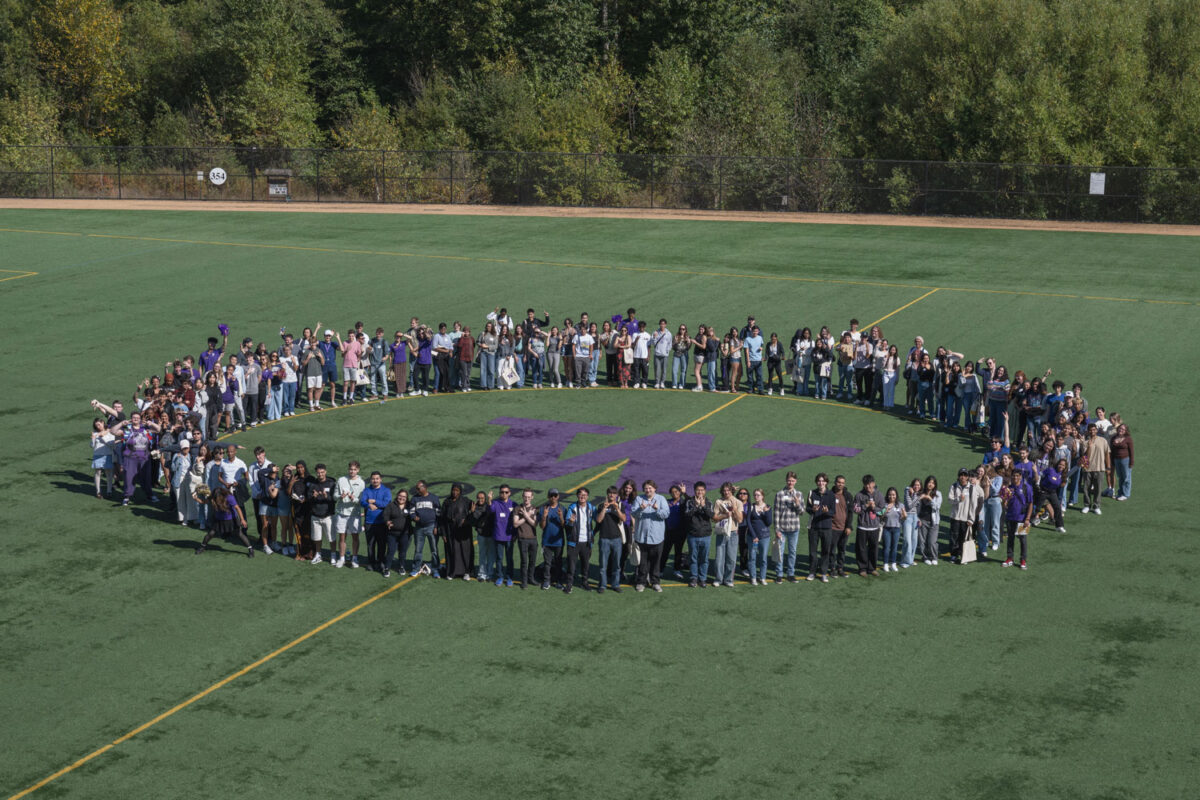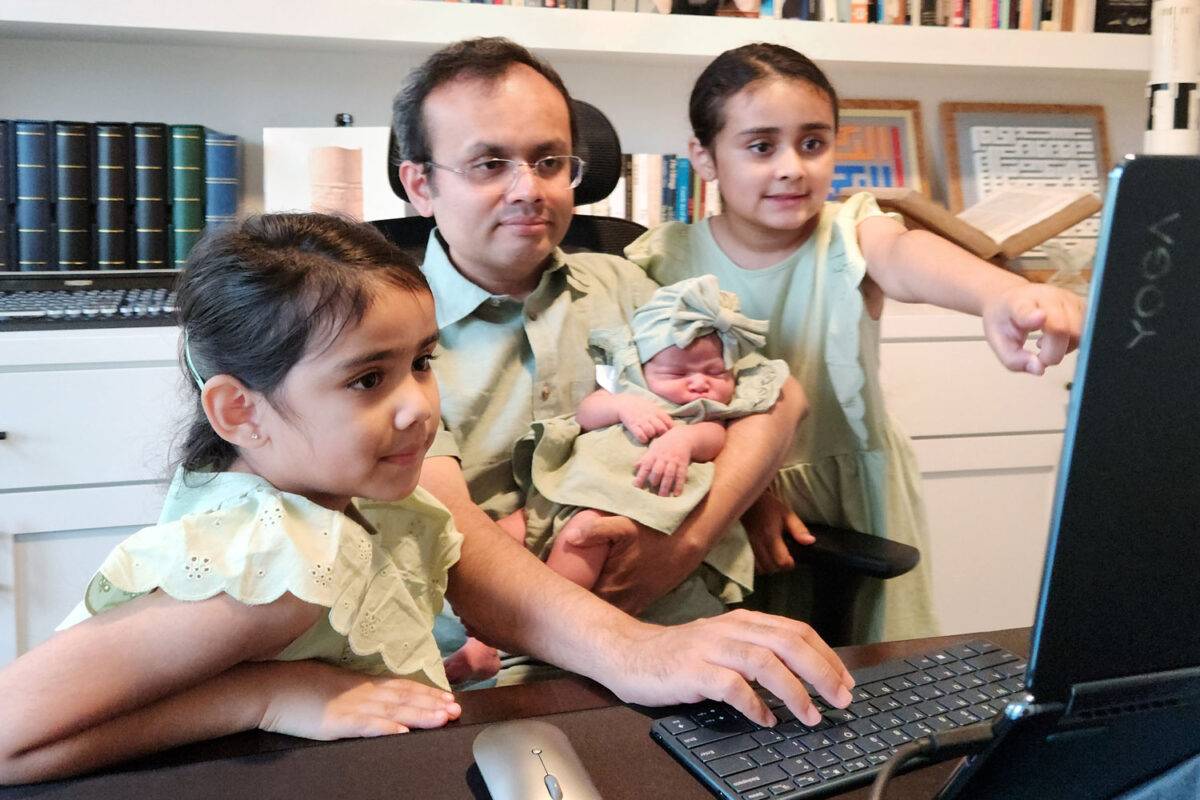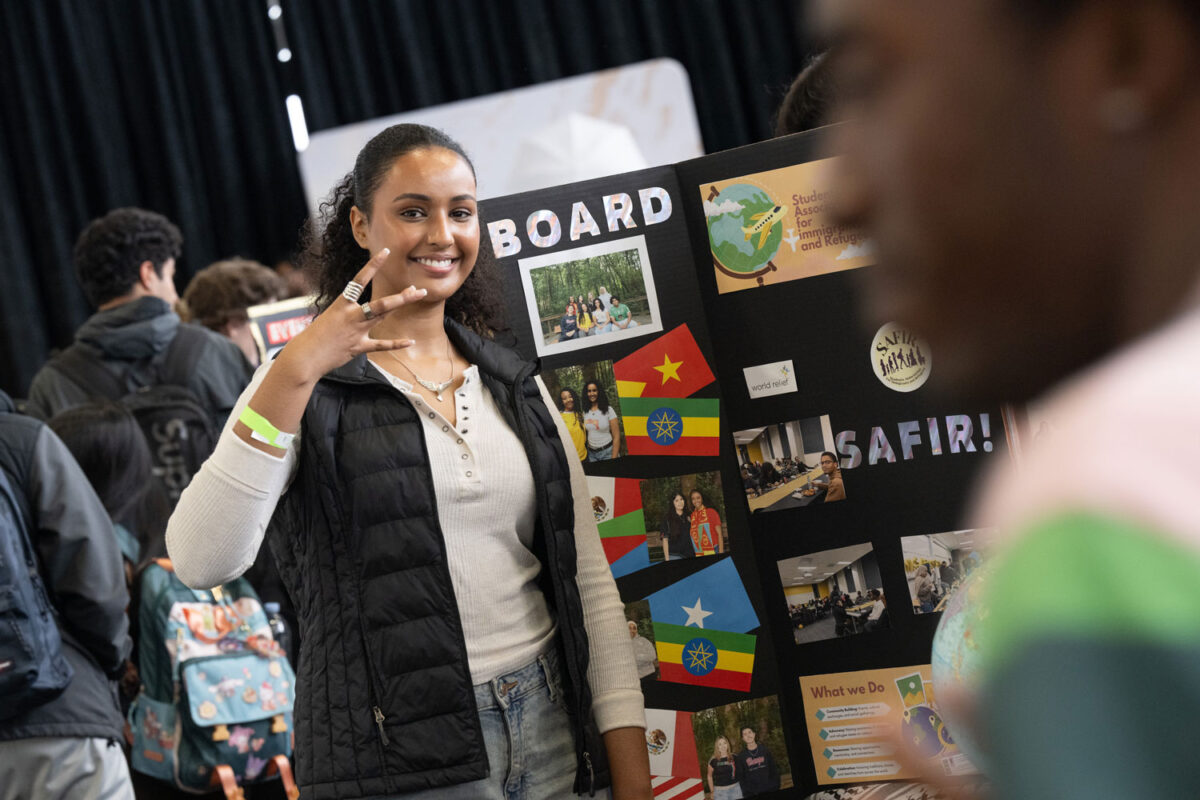
Martin Luther King Jr. once said, “Our lives begin to end the day we become silent about things that matter.”
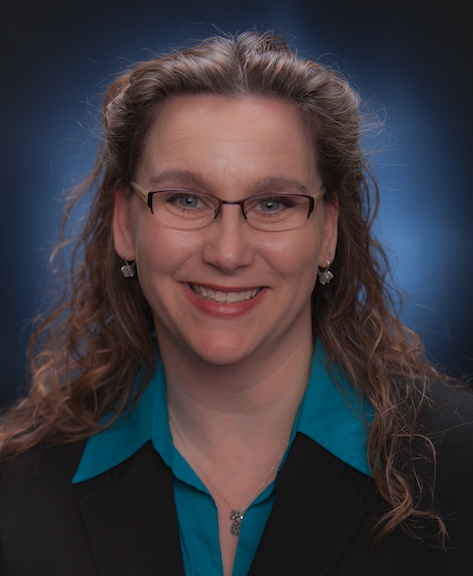
By taking these words to heart, students on the University of Washington Bothell’s speech and debate team keep King’s legacy alive.
They give voice to things that matter. The students have written and performed speeches about their personal experiences of being a Black woman in the United States, being a trans person in sports and witnessing society’s recent uproar about a missing white woman and its silence about missing or murdered Indigenous women and women of color.
The students also talk about what it’s like to be “a chocolate chip in a bowl full of whip cream,” said Denise Vaughan, lecturer in the School of Interdisciplinary Arts & Sciences and head coach of the team. “Their speeches have moved me to tears many times.”
Through their work, members of the speech and debate team have learned that while actions often “speak louder than words,” words also have the power to spark action.
The dream of Luke Scott
Like King, they use words to activate, to inspire and to make change. Student Luke Scott, a sophomore majoring in Law, Economics & Public Policy, wrote a speech in spring 2021 about what it’s like to be a trans person in sports. He dreams of a world that, at the very least, considers the humanity of trans people.
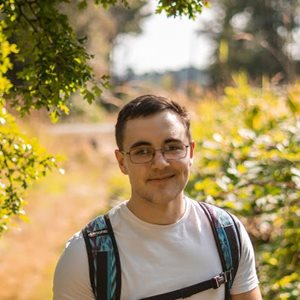
“I am a trans man, and growing up I was very into sports. I was a two-time competitor in the world championship in martial arts. I played softball and was on a premier women’s soccer team,” he said. “But when I came out, I was kicked off the team, and I could no longer play sports because I wasn’t female. In their eyes, I wasn’t male either.”
As a 14-year-old youth just trying to exist as a trans person, he said it never occurred to him that he should have had the option to play for the male team.
“In spring of 2021, I heard about legislative bills that were trying to keep trans youth out of sports and locker rooms, and I knew I had to do something,” he said. “It was too late for me, but at least I could try and help keep other trans youth in sports. So, I pulled together a speech and delivered it at nationals in March, just two weeks after writing it.”
He placed among the top students in what was his first competition — but more important to him was the positive feedback he got from faculty and fellow students. After giving his speech, one of the audience members also told him that he learned something new and thanked him for informing him on the issue. “Hearing that gave me a lot of hope,” Scott said. “It meant a lot to know my experience resonated. It’s proof that our message as trans people is not lost. There is hope that we can still be validated and humanized.”
Vaughan said Scott performed the same speech at Novice No More, another national competition, and placed second. “The speech not only swayed some of the listeners,” she said, “but proved the community is listening as well.”
Helping others climb the ladder
While speeches can benefit communities, they also benefit the speaker. “Students who participate in speech and debate see an increase in their test scores, improve their grade point averages and perform better in classes,” Vaughan said. “It also increases the likelihood of graduation and graduating on time.”
She explained that it’s partly because these students have a faculty mentor who is invested in their success. As a mentor herself, Vaughan said she knows the students so well she could tell you their favorite restaurants and what they like to eat for dinner at debate tournaments.
“It’s great to form those personal relationships as it gives students a broader community and support system,” she said. “Because I know them so well, I can help by connecting them with other faculty from different departments based on their interests and needs.”
The students also pay it forward by mentoring local middle and high schoolers through Climb the Mountain, a nonprofit organization in Seattle that provides direct, individualized support for speech and debate.
Most of the schools where the team members volunteer are comprised predominately of students of color from low-income households. These students do not often see people who look like them in positions of power. And when they do, Vaughan said, it can make a deep impression.
That was the case with a girl who saw one of the mentors, Ayan Abdi, who is Muslim and wears a hijab. The girl came up to Vaughan after class and said, “‘Ayan wears a hijab’ — and the way she said it was like it was a revelation. Seeing someone who looks like her in front of the classroom made a big impact.”
Following Dr. King’s footsteps
Vaughan first realized the importance of representation in speech and debate while at a national tournament. “One of my students came out of a debate and said, ‘That was the first time I ever had a Black judge.’ I felt deflated,” she said. “We were at a national convention, which should serve as an example to teams across the country. I just couldn’t believe that was the first time.”
It inspired her to do some research, and she found that in the region — Washington, Idaho, Montana, Alaska and parts of Utah — she is one of only several female directors. and among them there is only one woman of color. The rest of the directors are white males. She then looked at coaches and assistant coaches, and found that she is the only director who has hired a non-binary or trans person.
“The lack of representation is just horrible,” Vaughan said. “Most people join speech and debate to find a voice, many from marginalized communities, and they need leaders they can relate to. We need to do better.”
Thanks to the UW Bothell students, the local speech and debate community is doing better. Students of different sexual and gender identities as well as different religions and nationalities are all involved on the team and volunteer to mentor younger generations.
“One of the reasons I am involved with Climb the Mountain is due to representation,” Scott said. “I think about as a child how much I wished I had a role model who was queer like me — how incredibly impactful it would have been to know that who am I is okay. Maybe one day, I can be that validation someone needs.”
Vaughan is exceptionally proud of her students. “I am continually amazed by who they are, what they do for others and the impact they make in our community,” she said. “They follow in Dr. King’s footsteps by giving voice to the things that matter.”

